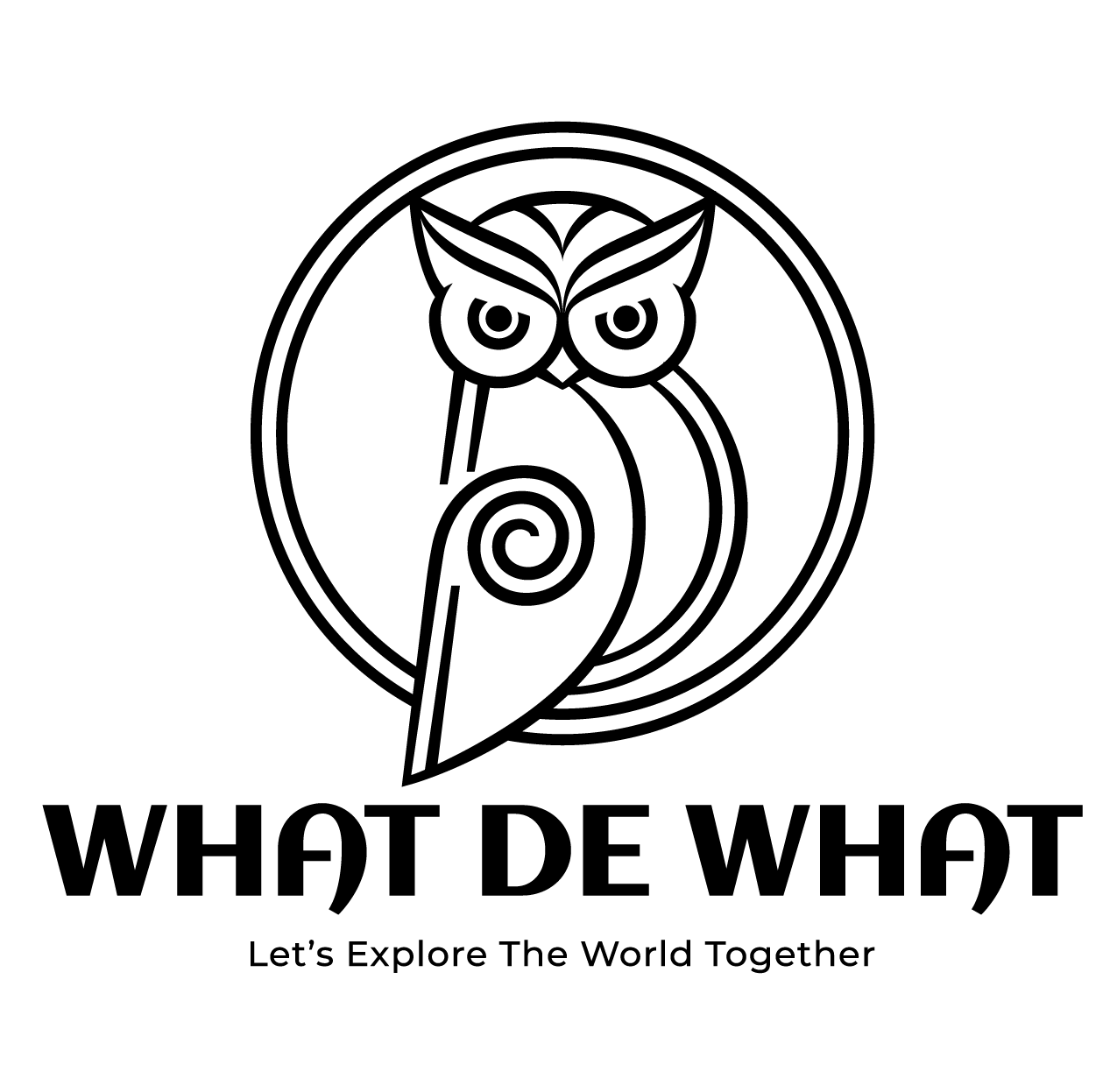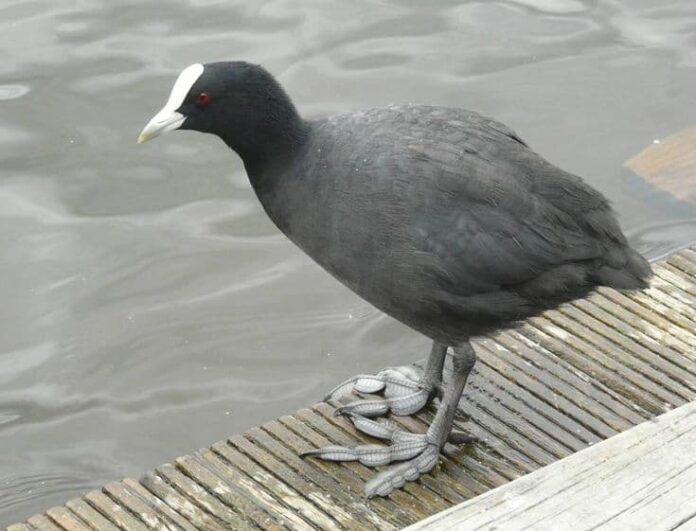An Australian coot looks like an imaginary bird drawn by young kids that comes to life. Those feet, for example, you can never mistake that for anything else. Could be a little freaky to look at but there are quite a few fascinating things about these water birds. An innocent face with feet larger than its head, let’s learn more about the Australian coots below.
1Appearance
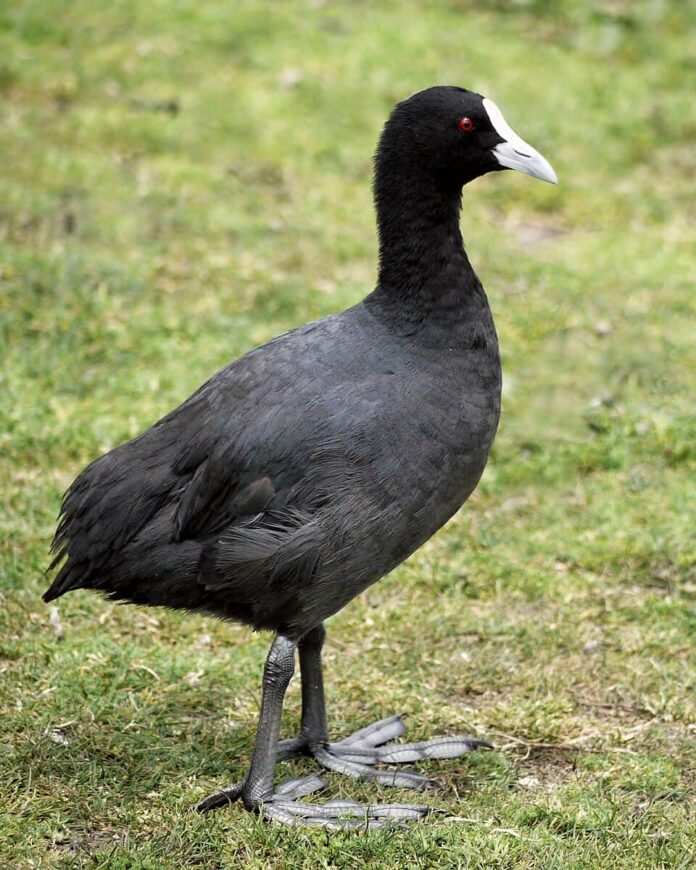
The Australian coot aka Eurasian coot is a large bird that stands 36 to 38 centimeters, with a wingspan of 70 to 80 centimeters. Australian coots are fascinating birds that have a very unique appearance, with a slaty-black body and glossy black head. On the head is a white frontal shield, and the bill of the bird is also white. The most distinctive part is definitely the long strong toes with partial webbing that these birds have.
Their feet can be blue or gray, but all very large and eye-catching. These broad fleshy lobes on their toes give them propulsion when swimming which is very similar to frog feet. Along with that, those large toes also play a major role in distributing their body weight. That allows them to walk on floating rafts of water plants without sinking. Another benefit that the feet provide is when the Australian coots fight with other waterbirds. Those feet tend to help a lot in many fights, even the ones against their own kind.
2Behavior
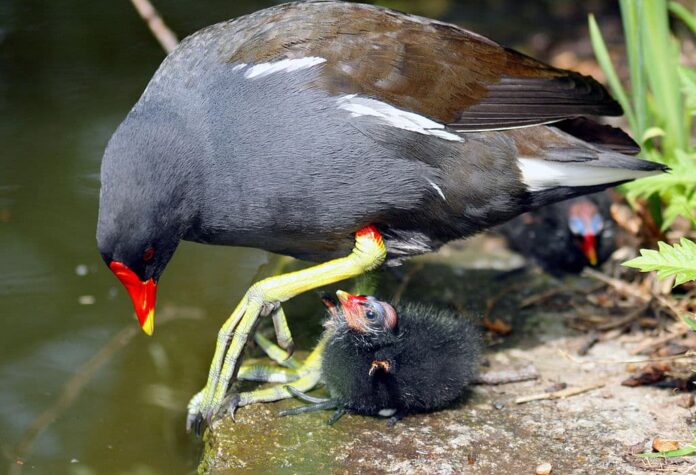
Eurasian coots like to swim in open water or walk across waterside grasslands, and they are not secretive at all. In fact, they are very aggressive and territorial birds, especially during the breeding season when parents need to be protective. When they need to fight with other waterbirds or even other coots, they attack by charging and striking them with their legs.
While being protective, Australian coots can be quite brutal with their own young when under pressure like lack of food. Parents will repeatedly bite the chicks that are begging for food until they stop begging. If the chicks don’t stop, they will bite the chicks so hard that they kill them. When food is scarce, chick mortality is due to starvation rather than predation; and of course, by the parents.
3Feeding & Habitats
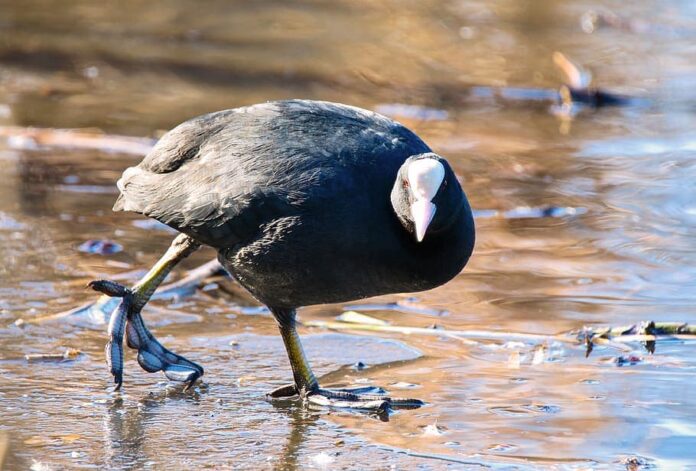
As omnivores, they feed on a variety of meals including algae, fruit, leaves, seeds, shoots, vegetation, and small live prey. Their favorite small prey is fish, frogs, insects, snails, tadpoles, and worms. At the same time, these coots also prey on the eggs of water birds if the opportunity arises. Sometimes they graze on land or in water while some other times they dive into the water to search for food.
Despite the name, Australian coots do not only live in Australia but also in Africa, Asia, Europe, New Zealand, and parts of North Africa. Across their range, they live and breed in freshwater lakes and ponds, lagoons, rivers, streams, and swamps.
Related Post: Blue-Footed Booby Facts
